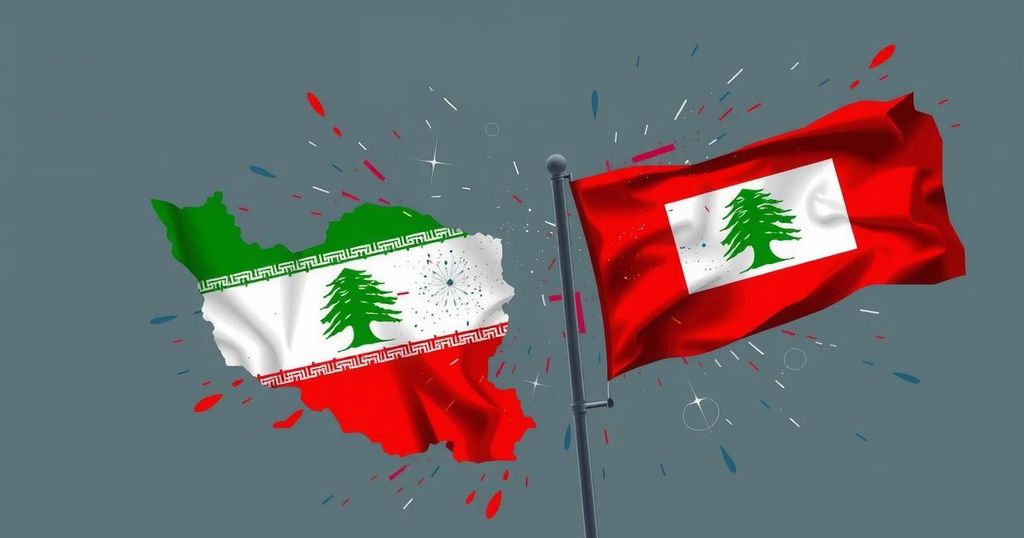Iranian Foreign Minister Abbas Araghchi reaffirms support for Hezbollah amid potential ceasefire with Israel. Iran is enhancing its military and diplomatic presence in Lebanon while evaluating future strategies regarding nuclear armament and proxy conflicts. The outcomes of these developments will significantly influence Iran’s role in the region.
In light of potential ceasefire negotiations between Israel and Hezbollah, Iranian Foreign Minister Abbas Araghchi reaffirmed Iran’s commitment to supporting the Lebanese resistance during a recent communication with an Iranian official. As tensions escalate, Iranian rhetoric emphasizes solidarity with Lebanon’s government and people. This support includes dispatching a medical mission to Lebanon, indicating Iran’s proactive stance, while also reportedly clandestinely supplying weapons to Hezbollah.
In a statement cited by Iran’s state media, Araghchi praised the resilience of the Lebanese fighters in their ongoing confrontations with Israeli forces, highlighting the necessity of unity in resisting aggression. Furthermore, the Iranian envoy provided updates on efforts aimed at mitigating Israeli military actions and securing a ceasefire, underscoring Iran’s vested interest in these developments. Moreover, Iran aims to integrate Hezbollah’s operational capabilities with Gaza’s actions following Hamas’s recent offensive against Israel, suggesting a strategic alignment in the region.
As Israel intensifies its military operations in southern Lebanon, Iranian interests are at a crossroads, mirroring a historical pivotal moment reminiscent of Julius Caesar’s famous crossing of the Rubicon. Should the anticipated ceasefire materialize, Iran faces crucial decisions regarding its nuclear ambitions and the potential resurgence of proxy attacks against Israel from various fronts, including Syria and Iraq. Additionally, the period leading to the inauguration of President-elect Donald Trump presents Iran with a calculated window for military or strategic responses.
The next weeks are critical for Iran as it contemplates its path forward; whether to focus on enhancing its nuclear capabilities or orchestrating proxy assaults on Israel remains to be seen. This dual threshold reflects Iran’s broader regional strategy, which increasingly intertwines with the dynamics of the ongoing conflict in Lebanon.
Iran’s involvement in Lebanon has long been characterized by its support for Hezbollah, a key ally in the region. Following Israel’s military actions in Lebanon and the broader conflict in the Middle East, Tehran has ramped up its rhetoric and support towards Hezbollah amidst ongoing tensions. The situation has become more complex with the rise of Hamas and the need for Iran to showcase its influence across multiple fronts, including Gaza and southern Lebanon. The possibility of a ceasefire represents a strategic opportunity for Iran to reassess its options moving forward in a region experiencing significant geopolitical shifts.
In summary, the evolving situation surrounding a potential ceasefire in Lebanon poses critical questions for Iran’s strategic decisions. With both military and diplomatic avenues at play, Iran’s response will not only impact its relationship with Hezbollah but also its broader ambitions in the region. The coming weeks will reveal whether Iran prioritizes nuclear development or escalates proxy confrontations against Israel, potentially reshaping the Middle East’s geopolitical landscape.
Original Source: www.jpost.com






